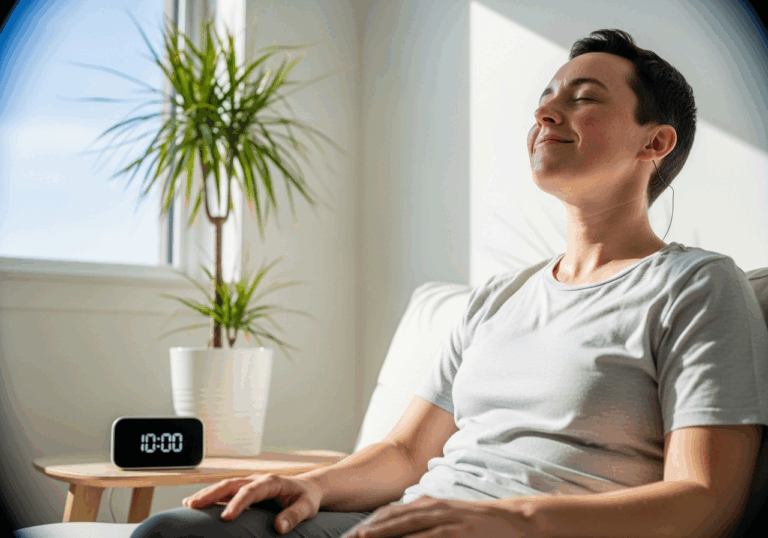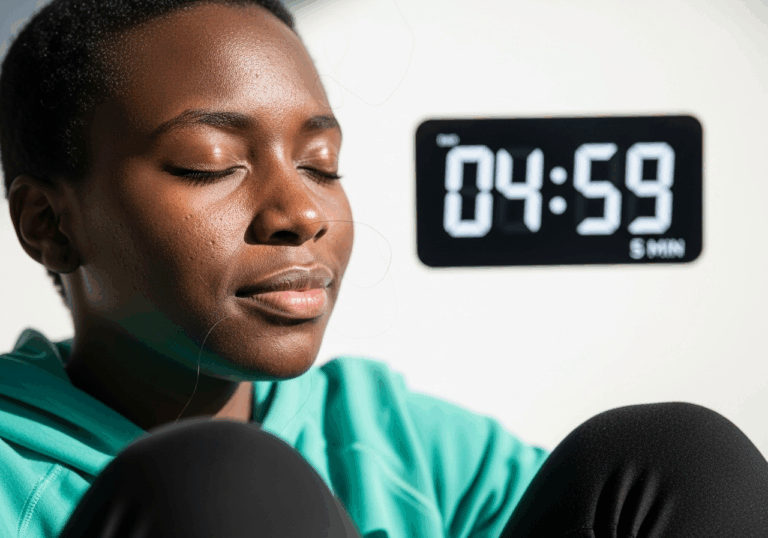Science-Backed Tips
Breathe Better, Stress Less
Acute breathing techniques improve mood and calm by 30%.
📊 Did you know?
💡 Why It Matters
1️⃣
Improving HRV by 30% can enhance overall stress resilience.
2️⃣
Lower stress levels can lead to better cognitive performance and productivity.
3️⃣
Practical breathing interventions can be easily integrated into daily routines.
✅ Try These Micro-Tips
🎯
Practice acute breathing techniques for 5 minutes before tasks.
🎯
Engage in 10-minute breathing exercises twice daily.
🎯
Incorporate deep breathing into your morning routine for stress management.
🎯
Use guided breathing apps for structured sessions.
📚 The study
Don’t underestimate the power of your breath; it could be the secret weapon you need to thrive in today’s fast-paced world.
❓ Frequently Asked Questions ❓
Learn more
What is acute ANB and how does it affect HRV?
Acute ANB refers to acute abdominal breathing techniques that can modulate heart rate variability (HRV). This modulation helps in reducing stress responses and improving mood before cognitive tasks.
How does HRV relate to stress and cognitive performance?
Higher HRV is associated with lower stress levels, which can enhance cognitive performance and productivity. Improving HRV by 30% can significantly boost overall stress resilience.
What are practical breathing interventions?
Practical breathing interventions are techniques that can be easily integrated into daily routines to lower stress and stabilize mood. Examples include acute breathing techniques and structured breathing exercises.
How long should I practice breathing techniques before tasks?
It is recommended to practice acute breathing techniques for 5 minutes before engaging in tasks. This short duration can effectively help in reducing stress and improving focus.
How often should I engage in breathing exercises?
Engaging in 10-minute breathing exercises twice daily is beneficial for managing stress. Consistency in practice can lead to improved mood stability and cognitive performance.
Can I incorporate breathing exercises into my morning routine?
Yes, incorporating deep breathing into your morning routine can be an effective strategy for stress management. Starting your day with focused breathing can set a positive tone for the rest of the day.
Are there any tools to help with breathing exercises?
Guided breathing apps can provide structured sessions to help you practice breathing techniques effectively. These tools can make it easier to stay consistent with your breathing exercises.
What are the immediate effects of breathing exercises on HRV?
Breathing exercises can lead to significant improvements in heart rate variability, indicating a reduction in stress response. This immediate effect can enhance mood stability and prepare you for cognitive tasks.
Is there a specific breathing technique that is most effective?
While various techniques exist, acute abdominal breathing is particularly effective for modulating HRV and reducing stress. Experimenting with different methods can help you find what works best for you.
How can I measure the effectiveness of my breathing exercises?
You can measure the effectiveness of your breathing exercises by tracking changes in your heart rate variability over time. Additionally, noting improvements in mood and cognitive performance can also indicate success.





